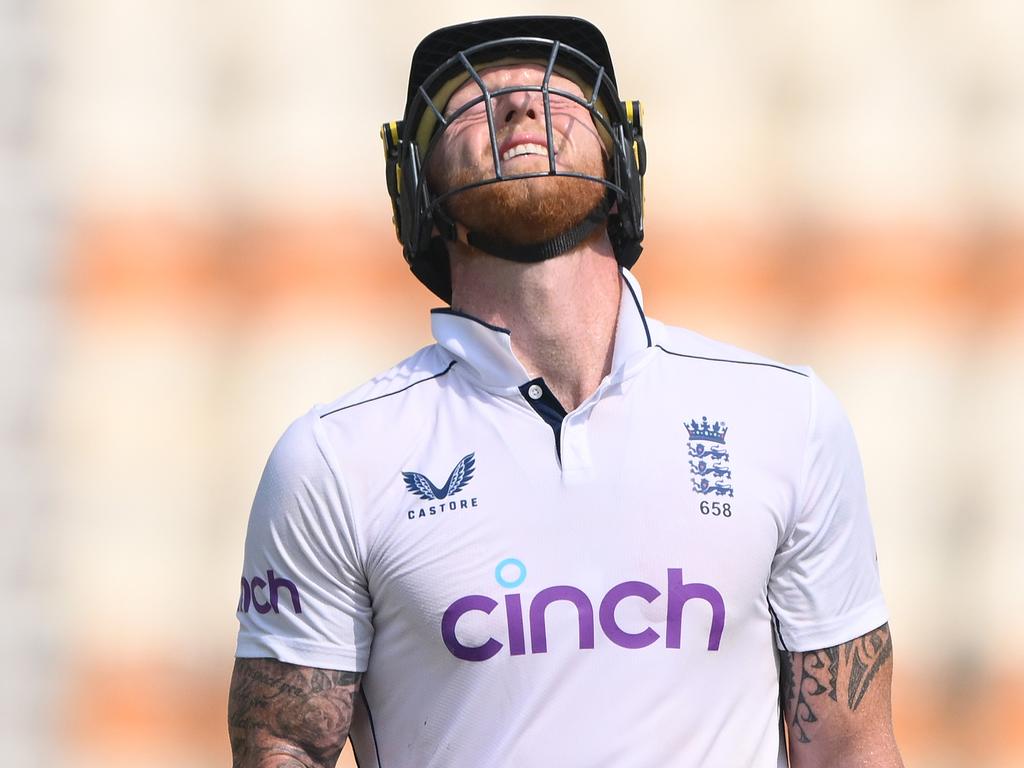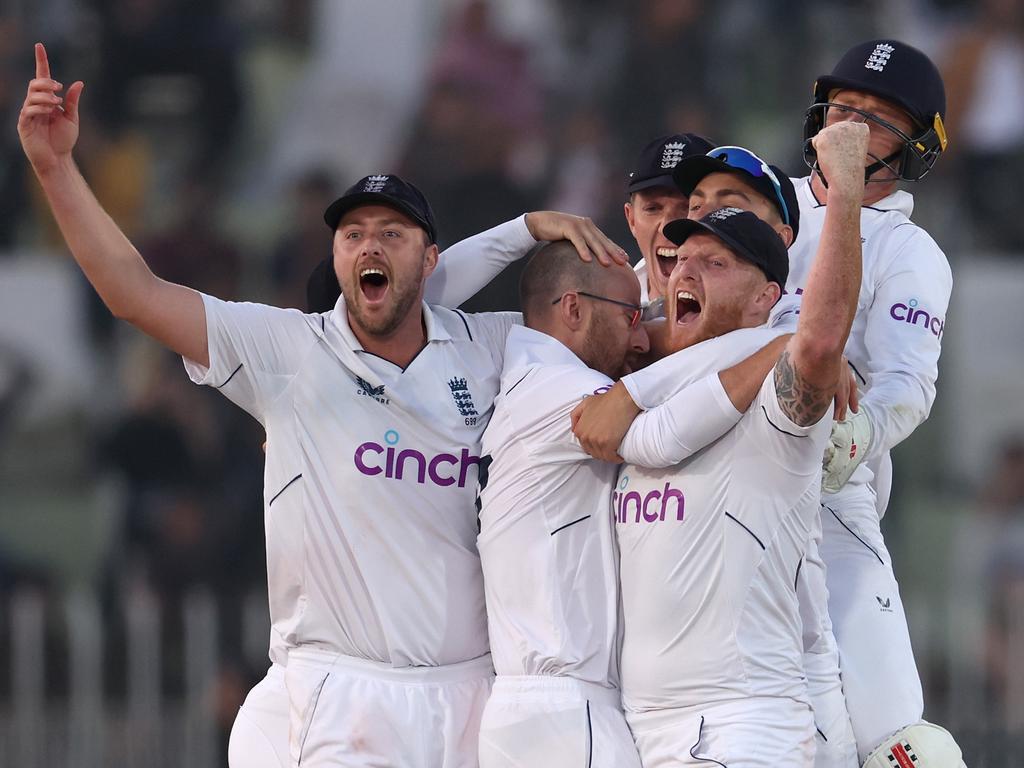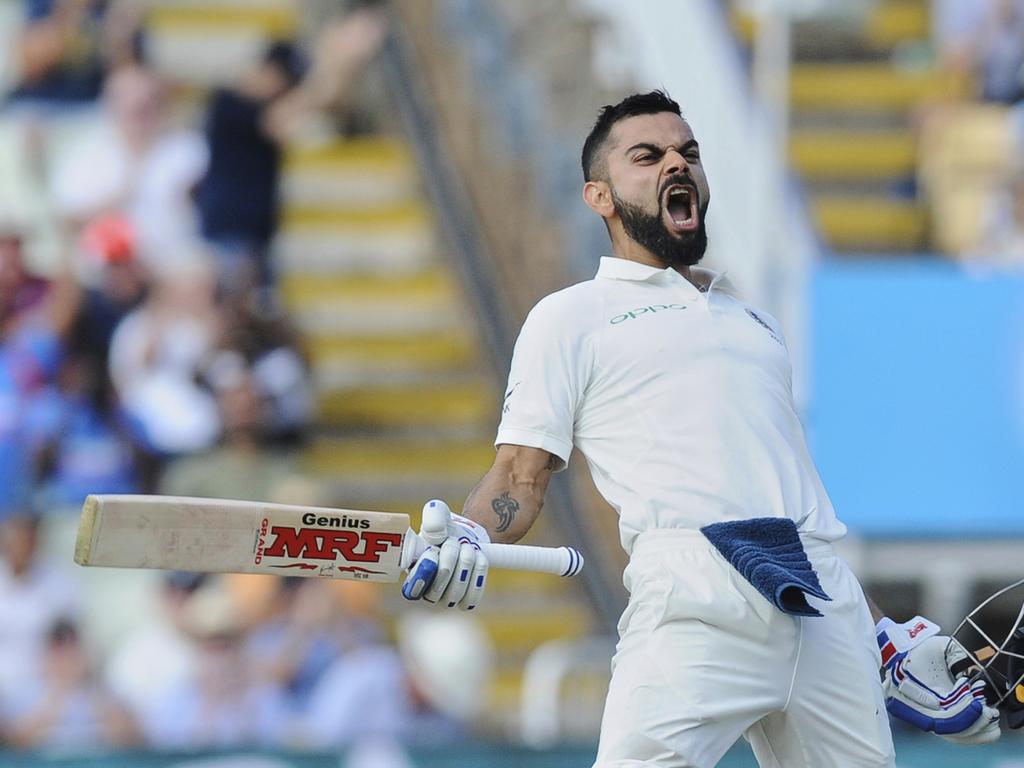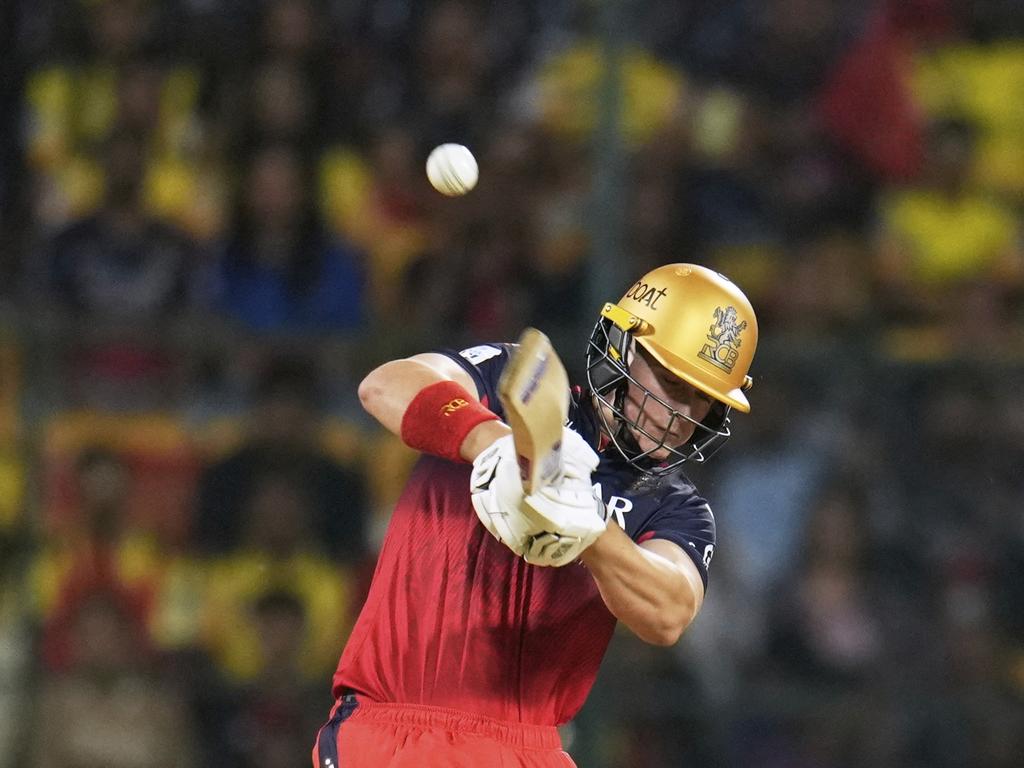Is Bazball a failed experiment? Mike Atherton addresses crucial nine months for England cricket
For three years, Bazball has produced some startling results and taken England to extraordinary heights. But it has hit hurdles in recent times. And the time has come to put up or shut up.
Sport
Don't miss out on the headlines from Sport. Followed categories will be added to My News.
When Brendon McCullum interviewed for the England job over Zoom, he did so in a baseball cap and T-shirt, and his message was a disarmingly simple one: pressurise the opposition with the bat, look to take wickets with the ball, and chase every ball as hard as possible in the field.
Shorn of buzzwords, bullshit, sound bites and mission statements, the interview panel was captivated by McCullum’s charisma and clarity.
After the stultifying restrictions of the Covid years, England’s cricketers (as well as others) were ready for some informality.
For three years, dress-down cricket – or Bazball – has produced some startling results: since Ben Stokes took on the captaincy, his win percentage stands comparison with any England captain, and better than all but three international skippers – Steve Waugh, Ricky Ponting and Pat Cummins – who have led their teams for any length of time.
Yet, a sense of impatience has been growing among some England supporters of late. Results have not been as strong in the past year as before, with two series defeats at the hands of India and Pakistan. There has been an inability, noted by Stokes in a recent interview, to maintain standards through a series: in four of the five series they played last year, England won the first Test but tailed off towards the end.

Two other factors have added to the general feeling of frustration. One has been the impression articulated by some observers, but denied strongly by Stokes and other players, of a team that doesn’t take its duties seriously enough. There is no doubt that the set-up is less rigid than before, in order to encourage a sense of freedom and enjoyment, but that is not necessarily to be equated with a lack of seriousness of purpose.
Essentially, the onus has been put back on the players to work out what preparation suits them best, and while practice sessions are often optional, most take the opportunity before Tests to put in as much volume as they have always done. Nevertheless, Stokes recently expressed some frustration about the perception of his team, so expect to see a moderation of the language used by players, and fewer mentions of golf in future.
A second factor is the extension of McCullum’s portfolio to include white-ball cricket, which has blurred the boundaries with the Test team. A bad start to his white-ball regime in the Champions Trophy, with attendant mistakes in selection and strategy, was a case in point, as it was during the travel-heavy limited-overs series in India, when criticisms of the work ethic were aired.

That is the dominant recent memory, as the Test team has been out of action for the past five months. For the next nine months, though, the focus will fall squarely on Tests. There are white-ball series against West Indies and South Africa this summer, as well as in New Zealand before the Ashes, and a T20 World Cup early next year, but there is no doubt that the narrative of the coming year will be determined by what happens against India this summer and then in the Ashes next winter.
More than that, the cliche goes that the next nine months will define the Bazball project in its entirety; that everything hinges on results against India and Australia. Up to a point – even if the next two series go badly, why should that de-legitimise everything that has gone before?
It is worth recalling some of the high points in the first three years under McCullum and Stokes, because they have been among some of the most thrilling I’ve watched. Who could forget the freewheeling batting of Jonny Bairstow and others throughout the summer of 2022; the astonishing batting on the opening day of the Rawalpindi Test later that year, when more than 500 was scored in a day, or the unprecedented whitewash that followed in Pakistan – a complete vindication of a bold strategy.
There have been two wonderful encounters in New Zealand, and an Ashes series that had everyone gripped in the summer of 2023. Throughout them all, the players appeared committed to the cause and happy in their work, two traits that reflected well on the leadership of the group, as did the seamless integration of some risky selections.

Sometimes, they have also charged too readily to defeat, a sign of the times as well as the team.
Results matter, but winning cannot be the only thing that matters. Danny Blanchflower’s dictum holds as true today as it always has: “The great fallacy is that the game is first and last about winning. It is nothing of the kind. The game is about glory, it is about doing things in style and with a flourish, about going out and beating the other lot, not waiting for them to die of boredom.”
But they matter, of course they do, and it is impossible to play down, in the Bazball context, the importance of the next two big series. They will not define the entire project in my view, but they will determine two things: whether the informality and what could be described as “looseness” is sustainable over the longer term, and whether it can work, in a winning way, against the best teams. Because so far, Bazball’s scalps have yet to include a full series win against India or Australia, the two foremost teams of the moment.
After what should be a formality against Zimbabwe this week, India loom not quite as menacingly as before. They have suffered two recent defeats, in Australia and a whitewash at home to New Zealand, as well as the departure of three very significant figures – Ravichandran Ashwin in December and Rohit Sharma and Virat Kohli, one immediately after the other, this month. The depth of India’s talent pool is the envy of the world, but great players such as these are rarely replaced seamlessly.

We will get a closer look at Australia in a month’s time, when they play South Africa in the World Test Championship final at Lord’s, but the hope must be that an ageing bowling attack, with Cummins, Josh Hazlewood, Mitchell Starc and Scott Boland all well into their 30s, will start to creak. If Stokes’s team stumbles there, they will hardly be the first to do so – England haven’t won a Test, never mind a series, in Australia since 2010-11.
Stokes is no spring chicken and much will rest on his body, which has been letting him down of late, and how well he navigates the balance between looking after himself and bowing to his competitive juices on the field. At the end of the New Zealand tour, he intimated that there would be no backward steps as far as that approach is concerned, but in a recent interview he sounded slightly more pragmatic and realistic.
The fundamental point is that England are a better team with Stokes in it and at the helm. It would be hard to be too optimistic if serious injury struck him again; it is doubtful they could win in Australia without him. Such an outcome would unbalance the team horribly and Ollie Pope, the putative vice-captain, is not certain of his place when Jacob Bethell returns from IPL duty.

By the time the Ashes ends, early next year, Stokes will be 34 and will have been captain for four years. If he plays every game between now and Sydney, that will be a span of 42 matches (plus one as a stand-in against West Indies in 2020). No England captain has done a Graeme Smith, who led South Africa for a decade; between four and six years has been the norm lately. England will have to think about succession planning whatever happens.
Some parts of the team appear well-oiled and completely settled, not least the middle order of Joe Root, Harry Brook, Stokes and Jamie Smith. Ben Duckett holds a firm grip on one opener’s spot, but Zak Crawley and Pope either side of him do not – and a fascinating few months awaits there. A solid top three is a non-negotiable in Australia.
Spin remains threadbare and in the hands of Shoaib Bashir, although alternatives in the shape of Jack Carson (Sussex) and Calvin Harrison (Nottinghamshire) have started to emerge. Right now, the pace attack has more questions than answers with Mark Wood and Olly Stone injured, Jofra Archer short of red-ball fitness and match practice and Brydon Carse and Josh Tongue coming back from injuries. Fingers crossed on that front.
At Trent Bridge this week, the Test team returns for the first time since beating New Zealand five months ago. It was a series that summed up England under Stokes and McCullum so far: often thrilling and winning, occasionally infuriating.
One New Zealand commentator was blown away by England’s cricket in the first two Tests, but then, after watching Pope get bowled reverse-ramping as they hurtled to defeat in Hamilton, sent me a withering note about England’s chances in Australia. Following this team can test one’s equilibrium.
This story first appeared in The Times and has been republished with permission.
More Coverage
Originally published as Is Bazball a failed experiment? Mike Atherton addresses crucial nine months for England cricket








